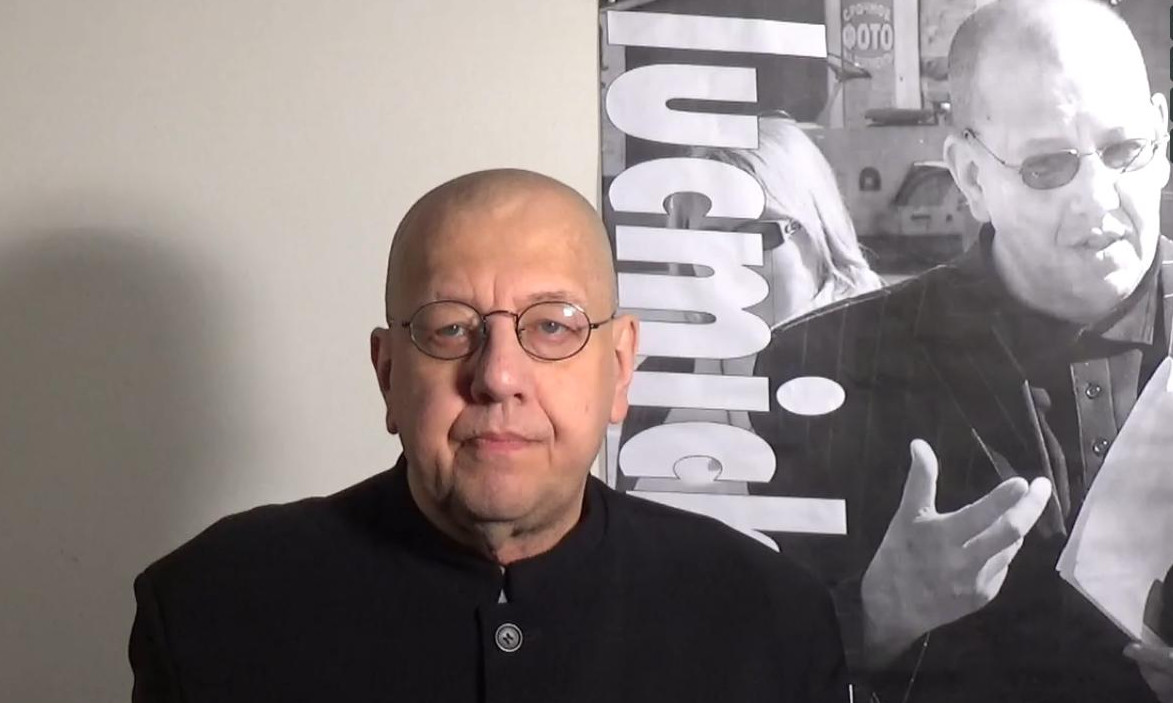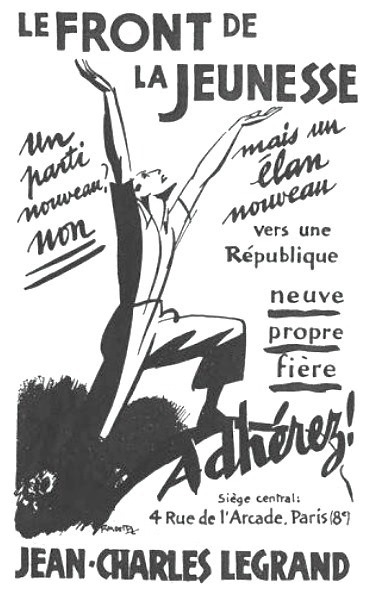In today's #vatniksoup, I'll introduce a Belgian political activist, Luc Michel (@LucMichelPCN). He's best-known for his extreme far-right views, supporting and promoting Russia-orchestrated fake elections, and organizing a vast African fake news network, Russosphère.
1/18
1/18

In his early years, Michel became part of Front de la Jeunesse, a far-right militia. In 1980, members of the organization killed a French-Algerian man in Brussels. In 1981, they burned down a publishing house for a magazine who exposed the organization's internal structures.
2/18


2/18


During the 80s Michel become an assistant of Jean Thiriart, a Belgian far-right political theorist and former Waffen SS member. Thiriart and Michel moved later towards National Bolshevism, and they also collaborated with Russian fascist Alexander Dugin.
3/18


3/18


In 1984 Luc founded The Parti Communautaire National-Européen (PCN), a National Bolshevik political organization with strong anti-US and "anti-Zionist" sentiments. It became the home of Maoists and neo-fascists, and admired the likes of Saddam Hussein & Slobodan Milosevic.
4/18


4/18


The goal of PCN was to unite the European far-left and far-right against Europe's "Yankee and Zionist enemies" and establish one big European nation stretching from Lisbon to Vladivostok. Dugin liked the idea so much, he made it the frontispiece of one of his books.
5/18




5/18




At the same time, Luc started making new connections in Africa. He was a close admirer of Muammar Gaddafi of Libya, but he was also making connections to the president of the Central African Republic. He even became the advisor to president of Burundi, Pierre Nkurunziza.
6/18



6/18



While Michel's party was fringe at best in Belgium, he managed to open a lot of doors in Russia. He headed the Eurasian Observatory for Democracy & Election, an organization with the sole purpose of whitewashing Russian-controlled elections in regions like Transnistria.
7/18


7/18


As the leader of the organization, Michel popped up in Transnistria (2006), Abkhazia (2007), Crimea (2014), Donetsk (2014) and Luhansk (2014) to observe the "elections". Russia even outsourced the hiring of observers to Michel and his henchmen for their sham referendums.
8/18




8/18




While the OSCE wanted nothing to do with Russia's fake elections, Russia cunningly went for deception. During the Crimea referendum, TV channel Russia24 claimed Michel represented the OSCE, while in Donetsk foreign observers came up with a similar acronym, ASCE.
9/18


9/18


Russia loves these similar naming conventions, which is why Michel also founded NAPO (North Atlantic Peace Organisation), a counter organization for NATO. While in theory it proposed peace, in reality it served as a propaganda vehicle for Russia to promote its narratives.
10/18


10/18


In a bizarre turn of events, Luc announced his involvement as an observer for The Detroit Republic Referendum. It turned out to be a project of Ramzu Yunus, a "NAPO activist" and a grifter who traveled to Russia in Sep 2023 where he allegedly met Wagner's youth members.
11/18



11/18



After Feb 2022, Russia's state media was restricted or banned from most social media platforms. Michel quickly filled the gap with Russosphère, a fake news network spanning most sites and that, according to Luc, is funded by "private money" and not financed by Russia.
12/18


12/18


Russosphère is targeted at the French-speaking population in Africa. At the beginning, the network was heavily promoted by paid trolls and bots, but later became an authentic organic influence operation with real followers around Africa.
13/18
13/18

The influence of Russosphère shouldn't be underestimated - it has clearly helped Russia in gaining more influence in the region, where it mostly operates via Wagner. Russia has also provenly orchestrated many "anticolonial" demonstrations in Africa:
14/18
14/18
https://twitter.com/P_Kallioniemi/status/1693209326414856561
Michel's success in Africa can be attributed to his ability to use the local's real grievances towards their former colonizers,namely France,to grow support for Russia. Russian disinformation was also a factor in driving out the French forces in countries like Burkina Faso.
15/18



15/18



In Sep 2023, WSJ reported that Wagner had vandalized a French brewery, destroying most of their stock. Wagner then started their own brewery that made "Russian beer" Ti L'or, and at the same time started a hate campaign towards the French brewery:
16/18



16/18



Back in Belgium,Luc shared a photo of a Lidl supermarket with empty shelves,claiming it was the result of the sanctions backfiring. Confronted with the facts (it had been a result of logistical problems not sanctions),Michel doubled down claiming it was a "NATO conspiracy".
17/18
17/18

Luc Michel is a laughing stock in Europe, but his influence operations and organizations have legitimized Russia's sham referendums and activities to African and fringe Western audiences.
His Russosphère network has also become a popular fake news media outlet in Africa.
18/18
His Russosphère network has also become a popular fake news media outlet in Africa.
18/18

This soup was prepared in collaboration with sous-chef @SLAVAUA2022NAFO.
Find us also on other socials:
instagram.com/vatniksoup/
youtube.com/@TheSoupCentra…

Find us also on other socials:
instagram.com/vatniksoup/
youtube.com/@TheSoupCentra…

CORRECTION 2/18:
The photos in the post are posters by the French Front de la Jeunesse. Here's some from the Belgian one:


The photos in the post are posters by the French Front de la Jeunesse. Here's some from the Belgian one:


• • •
Missing some Tweet in this thread? You can try to
force a refresh

































